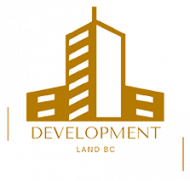Every parcel of land or piece of property has a zoning classification, set by the municipality where the property is located. Within each zoning classification are a set of acceptable uses for the land. Zoning is an important part of land development because without the correct zoning, a proposed development permit may not be approved.
Re-zoning applications are an arduous process in most areas and can take upwards of six months to a year, depending on the municipality. This process involves multiple readings or reviews before the city council and public meetings where people in the affected community have the opportunity to raise issues or concerns. Re-zoning sometimes also involves a developer making changes to the proposed development if there are environmental or other concerns.
The zoning for any property within a municipality can be found on the municipality website, generally under the zoning by-law regulations. They are often presented in a table format that shows the zoning designation, areas allowed, and acceptable uses under that zoning class.
Some of the standard zoning classifications may include:
AGRICULTURAL: Uses such as nursery, field crop or farm are included in this zoning. Generally, there are also rules surrounding having a primary dwelling or other ancillary uses or accessory buildings relating to the agricultural purposes of the property.
COMMERCIAL: Office, retail and service uses generally fall into the Commercial designation. This could include salons, laundromats or drycleaners, general office uses, grocery stores and other general retail outlets.
COMPREHENSIVE DEVELOPMENT: This site-specific zoning applies to developments such as parks, public use spaces, institutional uses, residential uses and a variety of other applications.
HISTORIC AREAS: In Vancouver, areas such as Gastown, Chinatown and Yaletown, have historic designations in place to ensure the preservation of properties with historical significance. Rehabilitation of these areas and properties upholds the importance of the properties and their history while understanding that the needs and activities of the community are evolving.
INDUSTRIAL: An Industrial designation can be further broken down into light, medium or heavy industrial uses. Some of the businesses permitted in an Industrial zone may include artist studios, print shops, church use, a variety of manufacturing uses, cold storage facilities, gas stations, public utilities, or storage facilities and many more.
RESIDENTIAL: A residential classification is applied to single-family dwellings, duplexes, multi-building properties, multi-family developments and in some cases, community care facilities.
Understanding the zoning classification of development property is critical in ensuring the proposed development is acceptable. And since there are a number of sub-classes within each of the above categories, anyone considering land development should make sure to review the current zoning to determine which zoning designation they will require to complete their development.
The classifications above are generally standard across municipalities, but it is important to consider the zoning and possible need for re-zoning if your development doesn’t fit within the current zoning designation.
